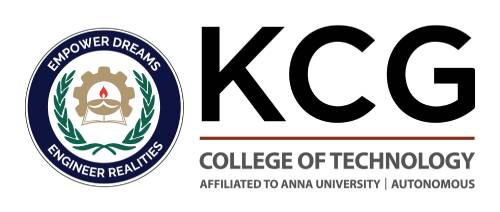CHENNAI
The Department of Electrical and Electronics, KCG College of Technology organized an IET sponsored TWO-DAY FACULTY DEVELOPMENT PROGRAMME ON “GREEN AND ENERGY EFFICIENT BUILDINGS WITH EMPHASIS ON POWER MANAGEMENT” on June 15 & 16, 2017. The inaugural function commenced at 9.30 am in Seminar Hall-I. The meeting was presided by Dr.G.Prabhakaran – Principal, Dr.P.Deiva Sundari – Head of the Department/EEE, Dr.G.Sambandan – Advisor/Electrical Sciences. The FDP began with an invocation and the invited guests were welcomed by Head of the Department/EEE. The Principal and the Advisor gave the felicitation address. Around 42 external participants from industries like CDM Smith Global Services, L&T, CMRL etc, Research Scholars and faculty from other Institutions attended the programme. All the faculty from EEE Department also attended the programme. The programme was inaugurated by the Chief Guest, Mr Babu Radhakrishnan, Director – Business Development, Johnson Electric Private Limited, Chennai. He shared his views regarding concepts on Green Building citing its importance in future. He also enlightened the gathering with information regarding Engine cooling fan motors, Window lift motors, Door lock motors and Head lamp levelling motors to Indian customers manufactured by Johnson Electric Private Limited.
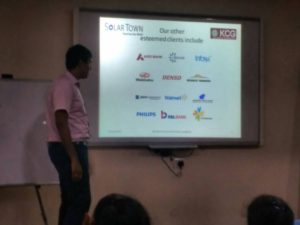 |
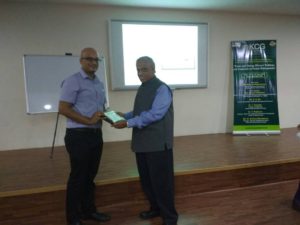 |
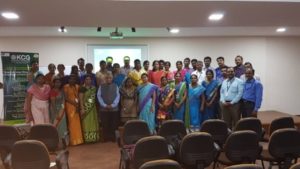 |
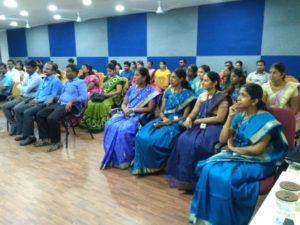 |
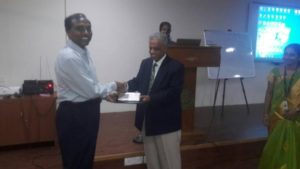 |
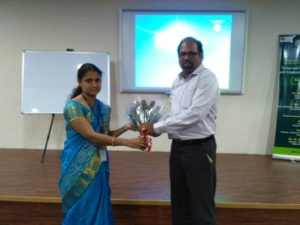 |
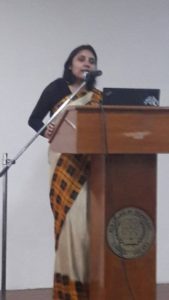 |
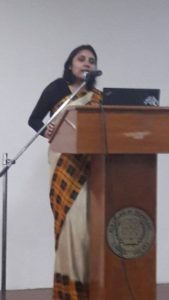 |
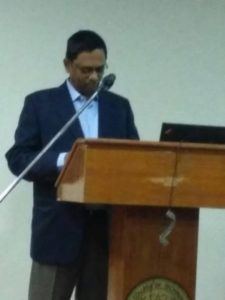 |
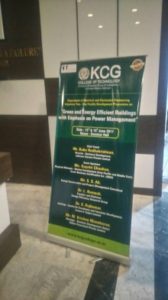 |
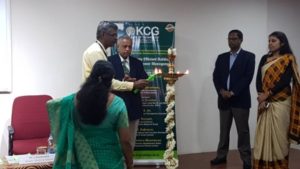 |
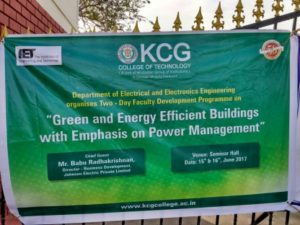
|
Day 1 – Session 1
Ms. Gayatri Chauhan, Regional Manager – Market Development (Asia Pacific and Middle East), Green Business Certification Inc.(GBCI), Bengaluru
She introduced us to the architectural concepts of Green Building. She made us aware of LEED certification. LEED certification provides independent verification of a building or neighbourhood’s green features, allowing for the design, construction, operations and maintenance of resource-efficient, high-performing, healthy, cost-effective buildings. LEED is the triple bottom line in action, benefiting people, planet and profit. She stressed on the importance of LEED certification, which leads to healthier more productive places and reduced stress on the environment by encouraging energy and resource-efficient buildings. The certification also emphasised on the savings from increased building value, higher lease rates and decreased utility costs. With ARC, LEED-certified buildings can benchmark against themselves and other similar buildings locally and globally. Spaces without certification can use ARC to make improvements in sustainability and human health and take steps toward earning LEED certification. Ultimately, ARC will eliminate complexities and barriers and enables us to make smarter decisions.
Session II
Mr. S.S. Ali, Consultant – Energy Conservation and Project Management, Chennai.
He gave an insight about the Efficient Management of Electrical Energy. He explained on power quality, harmonic mitigation, energy conservation, energy efficient lighting and maintenance management systems.
Session III
Dr. L. Ramesh, Founder and Chairman, Energy Efficiency Research Group (Green9), Chennai, Director – MGR Vision 100MW.
He introduced the concepts of energy efficiency and emphasised on how to manage energy efficiently in residential buildings. He gave an overview of the methodology and different opportunities for reducing energy use in buildings without sacrificing comfort levels. He explained the various mechanisms for financing energy efficiency measures in buildings. He explained about his Energy Conservation Initiative – Vision 100 MW. He also demonstrated various case studies on Power Management in Residential Feeder and Residential Flats.
DAY II – Session IV
Dr. S. Raj Kumar, In charge – Centre for Excellence and Futuristic Development, Larsen & Toubro Limited, Chennai.
He explained that the concept of Green Building concentrates mainly on two points: Increasing the efficiency with which buildings use energy, water and materials and Reducing building impacts on human health and the environment, through better site selection, design, construction, operation, maintenance, and removal throughout the complete life cycle. The key concepts in designing a Green Building lies in its Sustainable Site Selection, Material Resources and Water Efficiency. Green Building standards also contain certain guidelines for the waste management. First of all, it seeks to generate minimum amount of waste possible during construction. Generally during construction, a large amount of waste material generated is dumped to landfills; this waste needs to be reduced. A building constructed with proper designing and following Green architecture standards produce less amount of waste as compared to other buildings. Indoor Environment Quality is a very important parameter to be considered for Green Buildings. It directly affects the health of occupants, which says that in buildings with good environmental quality, proper heating and cooling system ensures adequate ventilation, fresh air with in duct filtration system should be installed to improve the quality of indoor environment.
He also emphasized on the fact that Ventilation is a very important factor in maintaining healthy indoor air quality as it is responsible for air exchange which supports the health and comfort of building occupants. Effective design and planning for ventilation is necessary to reduce the requirement of artificial ventilation. Automated Building System techniques like HVAC (Heating, Ventilation and Air Conditioning) systems regulates the heating equipment and air conditioners on the basis of their sensor based network. The sensors control the equipments on the basis of indoor environmental conditions. Similar to this, sensor controlled lighting system which monitors the lighting appliances based on the availability of natural light are also used.
Session V
Mr. Vignesh Sundaram, Head – Construction, SolarTown Energy Solutions Private Ltd.
He explained the design and installation of the solar plant at KCG campus. A visit was arranged for the participants to the 100kW Solar plant at KCG College of Technology.
Session VI
Mr. M. Krishna Manoharan, Head – Business Manager (Solar), ReGen Powertech Pvt. Ltd., Chennai.
He emphasized on concepts of Rooftop Solar Generation. He explained the installation methods of the solar rooftop panels. He showed a case study of the comparison of electricity bills before and after installation of panels. He explained about the Solar -Wind Hybrid projects of Regen Powertech at Vagarai. He mentioned about the advantages of a True Hybrid System – two largely independent generation systems located in close-proximity to each other in order to share larger transmission equipment and broader transmission infrastructure.
The programme concluded with feedback from the participants and certificate distribution by the invited speaker Mr. Krishna Manoharan.







